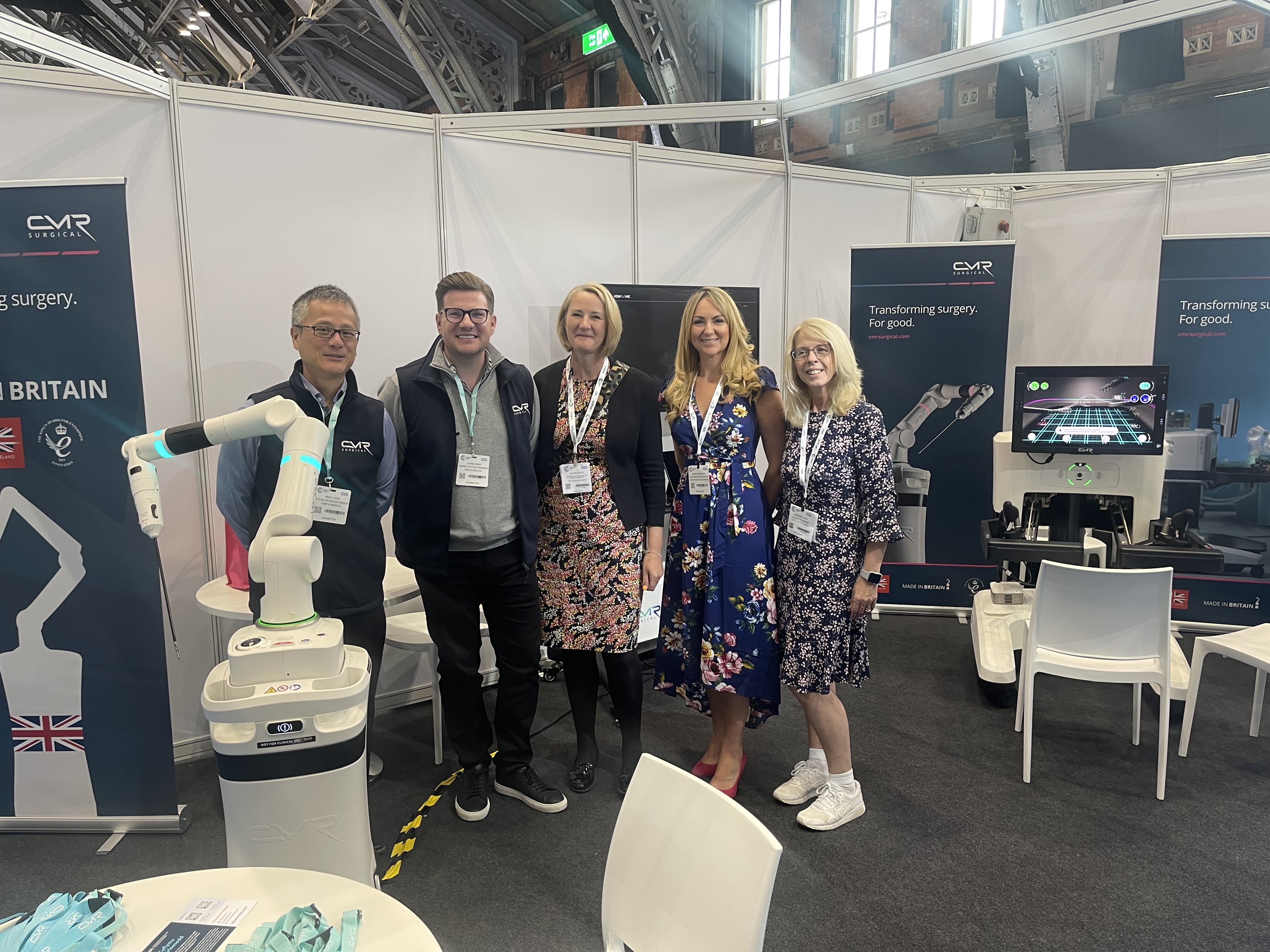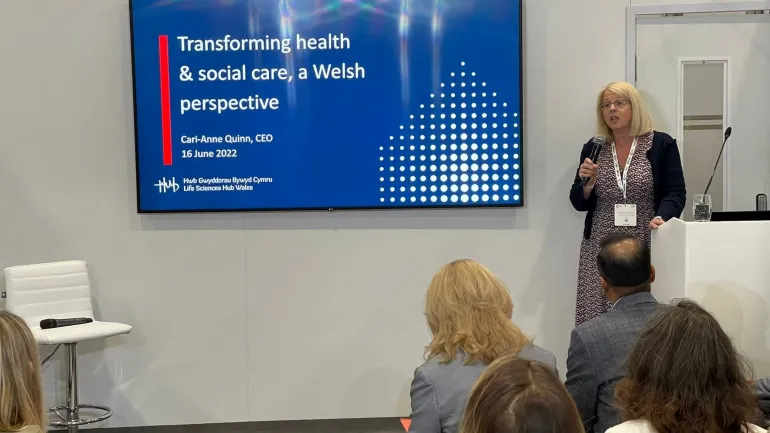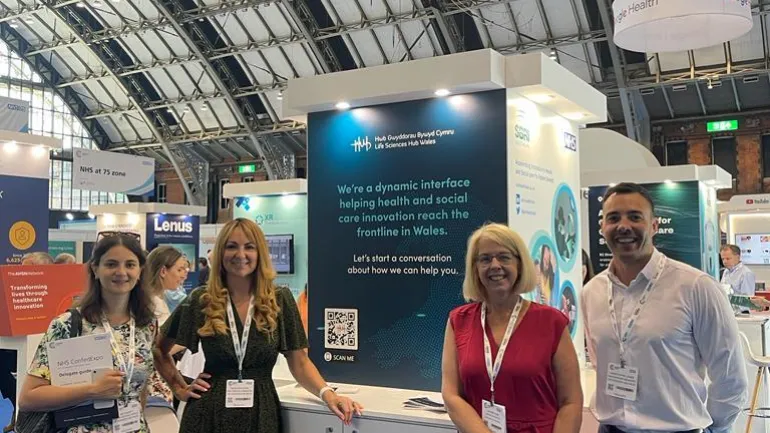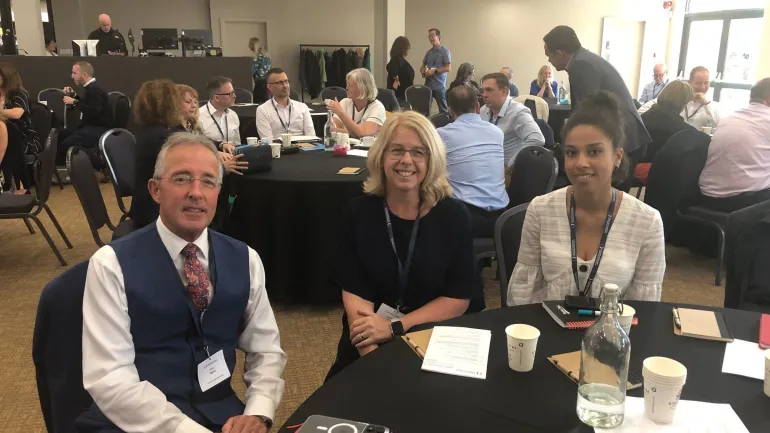I had a fantastic few days in Manchester for NHS ConfedExpo 2024! The event was filled with an energetic gathering of healthcare professionals, policymakers, and innovators, focused on addressing current challenges and envisioning a brighter future for the National Health Service (NHS).

The Expo highlighted significant issues such as leadership and collaboration, technology integration, cancer care, and health inequalities, through a diverse range of sessions, keynotes, and discussions. This blog details key highlights and takeaways I gathered from this inspiring event.
Innovations in cancer care: pioneering advances and personalised treatments
In the realm of healthcare innovation, specifically in cancer care, the Expo showcased remarkable strides towards personalised medicine and advanced diagnostics. One of the advanced innovations, discussed by Richard Meddings, (Chair, NHS England), was the integration of genomics into cancer treatment strategies. Genomics England, in collaboration with the NHS, has made significant progress in conducting 800,000 genomics tests aimed at detecting up to 200 different types of cancers. This initiative marks a pivotal shift towards more targeted and effective treatment plans tailored to individual genetic profiles.
AI technology also emerged in key discussions, with AI-powered algorithms increasingly used in radiology to swiftly and accurately analyse complex imaging data. Examples of this capability not only speeding up diagnosis, but also enhancing the precision of treatment planning, ultimately leading to better prognoses for patients. AI’s role is beginning to extend beyond diagnostics to administrative tasks within healthcare settings, streamlining operations and optimising resource allocation.
Another notable advancement discussed was the development of bespoke vaccinations in England, for cancer patients. Early trials and research indicated promising results, suggesting a future where cancer treatment could become more personalised and effective than ever before.
“Through advances in population health data, biomedicine and biotech, we’re beginning to see the emergence of ever more targeted treatments, particularly for cancer, with the recent announcements of trials for personalised cancer vaccines. This is exciting, but it’s only the beginning of the coming genomic revolution.” – Matthew Taylor, Chief Executive, NHS ConfedExpo.
Collaboration and partnering with purpose
The Expo highlighted the pivotal role of collaboration and partnerships in driving healthcare innovation forward. We saw a prime example of this at the talk chaired by Lucy George (Head of Business Innovation Oncology, AstraZeneca), on the collaborative efforts between the NHS and pharmaceutical company AstraZeneca. This partnership focuses on transforming cancer care pathways, through joint initiatives and innovative solutions. AstraZeneca have been actively involved in developing AI-driven tools to enhance radiology and cancer diagnostics, revolutionising the way cancers are detected and treated.
I was also delighted with the response from colleagues across the system as we dig deeper into our tackling cancer agenda. Improving cancer outcomes has been recognised by Welsh Government, as a key priority for Wales. It was great making connections, old and new at the Expo, establishing inspiring conversations around advancing cancer innovation in Wales, and what can be achieved through strategic commercial partnerships.
Moreover, integration within the broader healthcare ecosystem has been instrumental in advancing digital health solutions. Both Amanda Pritchard, and Matthew Taylor emphasised this within keynote sessions. The NHS England App, which boasts over 34 million users, shows how digital tools can empower patients by providing access to health records, appointment management, and prescription services. This integration not only provides patient experiences, but also enhances operational efficiency within healthcare delivery. These keynote sessions highlighted that collaborations extend beyond industry partnerships to alignment with government and policy integration, and that NHS leaders have the skills and commitment to transform healthcare over the next decade.
“A reorientation towards prevention is the only way to avert the growing health and wealth crisis” But the good news is this… Necessity is matched by opportunity. The combination of greater collaboration, new policy, data, digital biotech, changing public expectations, offer us huge scope to do things differently and better.” – Matthew Taylor Chief Executive, NHS ConfedExpo.
The future of healthcare: embracing digital transformation and patient-centric care
Looking ahead, the future of healthcare was highlighted in multiple sessions, driven by digital innovation, and a steadfast commitment to patient centric-care.
Amanda Pritchard, Chief Executive, NHS emphasised that technology and AI is making it easier than ever to innovate. We have a unique opportunity to revolutionise our patient support, and the time to think big, and radical is now.
"With an app in the pocket of 34 million people, we are putting more information and options at their fingertips. People have already viewed or changed 7.7 million secondary care appointments online. From online consultations to using artificial intelligence in hyper-acute stroke care, we are building the foundations for better care by fully embracing the data and AI revolution." – Amanda Pritchard, Chief Executive, NHS
Furthermore, “The digital-first patient empowerment” session showcased transformative digital innovations in cancer care, emphasising enriched patient engagement and streamlined pathways from screening to treatment. Key initiatives include:
- Targeted lung health check programme – aiming to detect lung cancer early in high-risk populations. Delivered in community settings, the program uses multi-channel strategies to boost participation.
- iPlato’s digital platform for cervical screening personalises digital patient communication with GP’s, automating engagement, and reducing inequalities, significantly increasing screening attendance by +109% (East of England) compared to letter only.
- Systematic Anti-Cancer Therapies (SACT) focusing on virtual care solutions like Huma. Huma’s platform co-designed with the NHS, enhances clinical capacity and patient adherence by enabling remote monitoring and virtual care, reducing unnecessary travel, and improving treatment outcomes.
I think it’s fair to say, the NHS ConfedExpo 2024 provided a compelling glimpse into the future of healthcare, supported by groundbreaking innovations, strategic collaborations, and a persistent activity in patient-centred care. As healthcare continues to evolve, these advancements offer new possibilities for improving health outcomes, and transforming lives across the UK and beyond.
Just as Amanda Pritchard covered, we come away from this event with inspiration and hope. By listening to others, connecting and collaborating practical ideas, and creating conversation, we are provided with the energy to continue to drive innovation to the frontline.
We’re also looking forward to attending the Welsh NHS Confederation Annual Conference on November 6, 2024. It’s set to be a day filled with inspiring sessions, opportunities to share learning and encourage innovation, along with valuable networking opportunities.
If you didn’t meet us at NHS ConfedExpo and want to learn more about how we can support you in propelling innovation to the health and social care frontline in Wales, then please get in touch by emailing hello@lshubwales.com.






